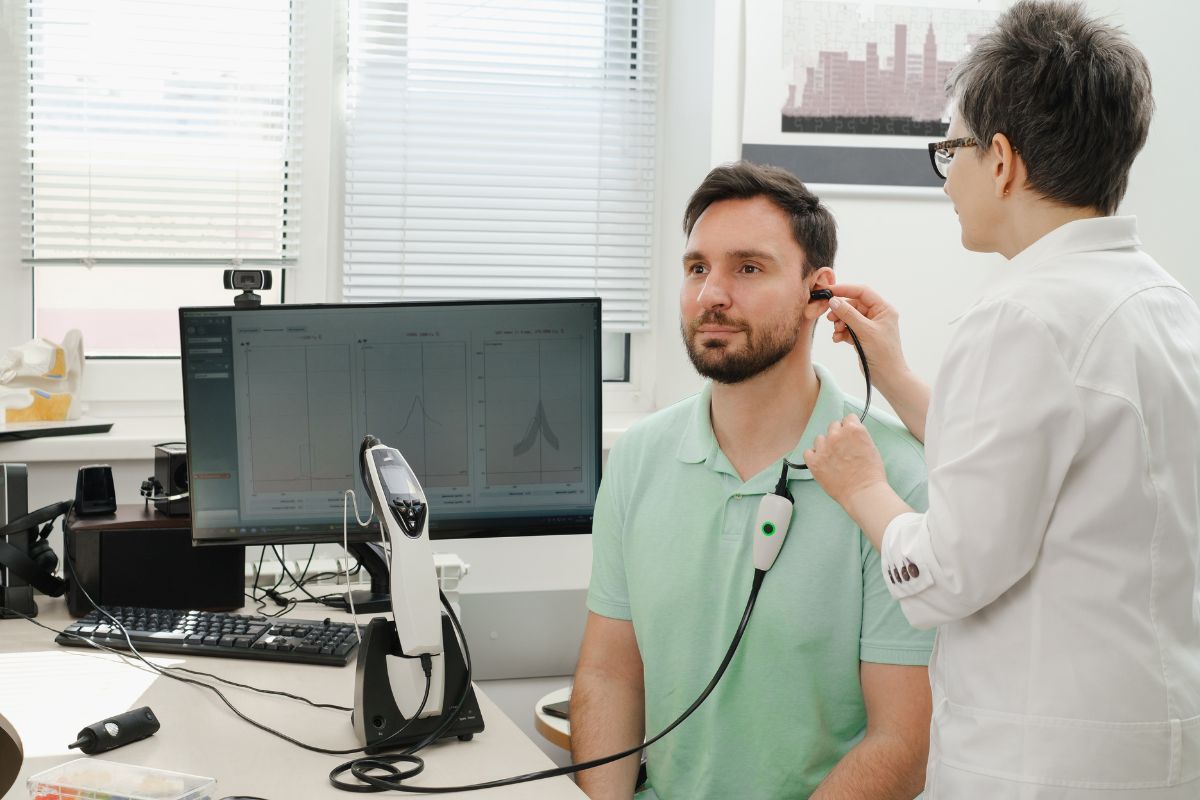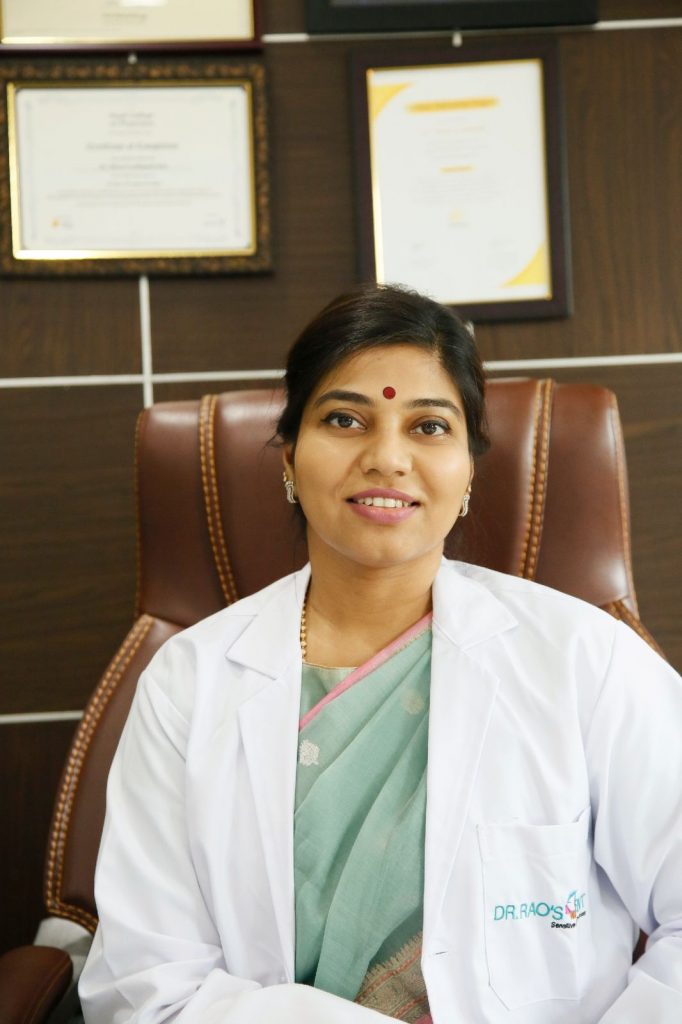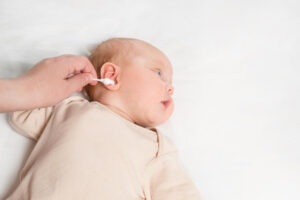Introduction to Hearing Restoration

In the discourse presented here, Dr. Shree Rao provides information about Hearing Restoration: Exploring Surgical vs. Non-Surgical Solutions. She is the Best Doctor for Cochlear Implants.
Hearing restoration encompasses a range of medical and technological interventions aimed at improving or reinstating hearing ability in individuals experiencing hearing loss. This field has seen significant advancements, including surgical procedures, hearing aids, and cochlear implants, which have revolutionized the quality of life for many patients. Guided by experts like Dr. Shree Rao, hearing restoration efforts focus on accurate diagnosis, personalized treatment plans, and continuous innovations in auditory healthcare. By understanding the diverse options available, healthcare professionals can better address the unique needs of each patient, promoting optimal hearing health and enhancing overall communication abilities.
Non-Surgical Hearing Restoration Options
Non-surgical hearing restoration options offer significant benefits for individuals with varying degrees of hearing loss. These solutions range from advanced electronic devices to therapeutic interventions, providing effective alternatives to surgical procedures.
Hearing Aids
Hearing aids are the most common non-surgical solution for hearing loss. These devices amplify sound and improve speech understanding. Available in various styles, including behind-the-ear (BTE) and in-the-ear (ITE), hearing aids are customized to fit the specific needs of the patient. Regular maintenance and proper fitting are crucial for optimal performance.
Assistive Listening Devices (ALDs)
Assistive listening devices (ALDs) enhance sound quality in specific environments, such as classrooms, theaters, and meeting rooms. ALDs include FM systems, infrared systems, and loop systems. These devices transmit sound directly to the user’s hearing aid or cochlear implant, reducing background noise and improving clarity.
Personal Sound Amplification Products (PSAPs)
Personal sound amplification products (PSAPs) are over-the-counter devices designed to amplify environmental sounds for individuals with mild to moderate hearing loss. While not a replacement for hearing aids, PSAPs can be beneficial in certain situations, such as watching television or conversing in a quiet setting. It is important to distinguish PSAPs from hearing aids, as they are not customized for the user’s specific hearing loss profile.
Auditory Training and Rehabilitation
Auditory training and rehabilitation focus on improving the brain’s ability to process and interpret sounds. These programs, often guided by audiologists or speech-language pathologists, include exercises to enhance listening skills, speech reading, and sound discrimination. Auditory rehabilitation can be particularly effective when combined with hearing aids or cochlear implants.
Medications and Treatments for Hearing Loss
Research into pharmaceutical treatments for hearing loss is ongoing. Certain medications may help in cases of sudden sensorineural hearing loss or when hearing loss is caused by an underlying condition, such as an infection or autoimmune disorder. While not a replacement for hearing aids or surgical interventions, these treatments can provide additional support in managing hearing loss.
Surgical Hearing Restoration Options
Surgical hearing restoration options are essential for individuals with certain types of hearing loss that cannot be effectively treated with non-surgical methods. These procedures aim to restore or improve hearing function through medical interventions, often resulting in significant enhancements in auditory perception and quality of life.
Cochlear Implants
Cochlear implants are sophisticated electronic devices designed for individuals with severe to profound sensorineural hearing loss. The implant bypasses damaged hair cells in the inner ear and directly stimulates the auditory nerve, providing a sense of sound. The procedure involves surgically implanting the device, followed by extensive auditory rehabilitation to optimize hearing outcomes.
Bone-Anchored Hearing Systems (BAHS)
Bone-anchored hearing systems (BAHS) are surgically implanted devices used for individuals with conductive hearing loss, mixed hearing loss, or single-sided deafness. The device works by transmitting sound vibrations through the skull bone directly to the inner ear, bypassing the outer and middle ear. BAHS is particularly beneficial for patients who cannot use conventional hearing aids due to anatomical or medical reasons.
Middle Ear Implants
Middle ear implants are designed for individuals with moderate to severe sensorineural hearing loss or conductive hearing loss. These devices are surgically placed in the middle ear and work by mechanically stimulating the structures of the ear to amplify sound. Middle ear implants can be an alternative for patients who do not benefit sufficiently from hearing aids.
Stapedectomy
A stapedectomy is a surgical procedure used to treat otosclerosis, a condition where abnormal bone growth in the middle ear prevents the stapes bone from vibrating properly. During the procedure, the surgeon removes the affected stapes bone and replaces it with a prosthesis, allowing sound waves to be transmitted to the inner ear. This procedure can significantly improve hearing in patients with otosclerosis.
Tympanoplasty
Tympanoplasty is a surgical procedure to repair a perforated eardrum or address chronic ear infections that affect hearing. The surgery involves grafting tissue to close the perforation and, if necessary, reconstructing the ossicles (tiny bones in the middle ear). Tympanoplasty can restore hearing and prevent recurrent infections.
Comparing Surgical and Non-Surgical Options
Comparing surgical and non-surgical options involves evaluating factors such as the severity of hearing loss, underlying causes, patient lifestyle, and potential outcomes. Non-surgical options are less invasive and offer immediate benefits but may not provide adequate hearing improvement for severe cases. Surgical options, while more invasive, can offer significant and long-lasting improvements in hearing, especially for individuals with profound or complex hearing loss. A thorough evaluation by an audiologist or otolaryngologist is essential to determine the most suitable approach, ensuring optimal hearing restoration tailored to each patient’s needs.
Factors Influencing Choice of Treatment
Selecting the appropriate treatment for hearing loss involves considering various factors to ensure the best possible outcomes for the patient. Key considerations include:
The extent and nature of the hearing impairment significantly impact the choice of treatment. Mild to moderate hearing loss might be effectively managed with non-surgical options like hearing aids, while severe to profound hearing loss often requires surgical interventions such as cochlear implants.
A comprehensive evaluation of the patient’s overall health and medical history is crucial. Conditions such as chronic ear infections, anatomical abnormalities, or other underlying health issues can influence the suitability of certain treatments. For instance, patients with conductive hearing loss due to structural problems may benefit more from bone-anchored hearing systems or other surgical solutions.
The patient’s lifestyle, daily activities, and personal preferences play a vital role in determining the appropriate treatment. Non-surgical options, such as hearing aids, offer flexibility and are easier to manage, making them suitable for individuals with active lifestyles. Conversely, those who require more significant auditory improvement, such as professionals reliant on precise hearing, may opt for surgical solutions.
Financial considerations and accessibility of treatment options also influence the decision-making process. Non-surgical options generally have lower upfront costs and are widely accessible, whereas surgical treatments might involve higher costs and require access to specialized medical facilities and follow-up care.
Advancements in hearing aid technology and surgical techniques continually evolve, offering new possibilities for patients. Staying informed about the latest developments can guide the selection of the most effective and up-to-date treatment options.
Age can be a determining factor in treatment choice. Pediatric patients, for instance, may benefit from early surgical interventions to support speech and language development, while elderly patients might prefer non-surgical options due to lower associated risks and easier management.
Conclusion
In conclusion, exploring both surgical and non-surgical solutions for hearing restoration reveals a comprehensive approach to addressing hearing loss. Under the guidance of experts like Dr. Shree Rao, patients can benefit from personalized treatment plans that consider the severity of their condition, lifestyle, and individual preferences. By combining advanced surgical techniques with state-of-the-art non-surgical options, healthcare professionals can optimize hearing outcomes and significantly enhance the quality of life for those affected by hearing loss.

Why consult EarSurgeon, Dr. Shree Rao?
Dr. Shree Cuddapah Rao is acclaimed as one of the best pediatric ENT specialists in Hyderabad. With 10+ years of deep domain experience in the field of ENT, she is the director at Dr. Rao’s ENT Super Specialty Hospital. She underwent specialized training in Rhinoplasty / Facial Plastic surgery at Singapore General Hospital, Singapore. She also underwent advanced training in cochlear implant surgery under Padmashri Dr. Milind V Kirtane and had a Fellowship in a cochlear implant. Having performed over 200 successful cochlear implants for patients worldwide, Dr. Shree Cuddapah Rao is also the recipient of several prestigious accolades in the domain of ENT. Dr. Shree Rao is one of the best ent doctor in hyderabad, to book an appointment click here.
Are you looking for
then you have landed at right place!







